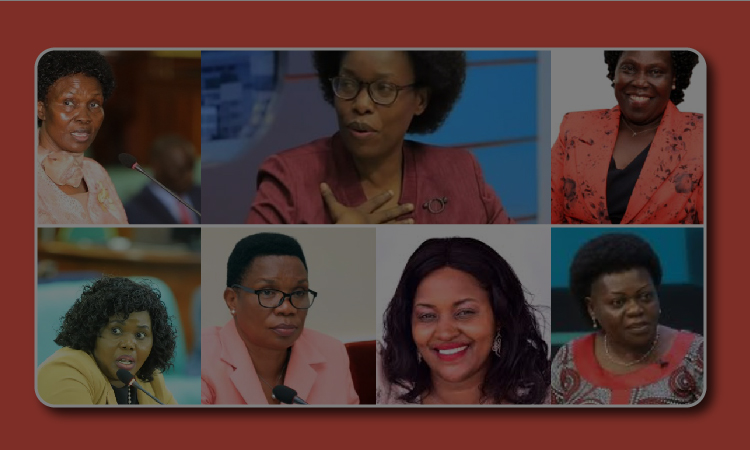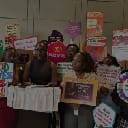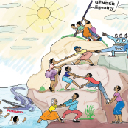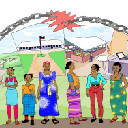Uganda’s Female MPs Demand Real Action on Women’s Rights
As Uganda celebrated International Women’s Day on March 8, 2025, the voices of female Members of Parliament (MPs) had already sounded a sharp warning: women’s rights in Uganda remain under attack, and symbolic gestures are no substitute for urgent action.
During a parliamentary sitting on March 6, women MPs laid bare the injustices that millions of Ugandan women face daily—denial of dignity, exclusion from economic opportunities, abuse in public, and neglect by policies that should empower them. Their message was clear: until the state takes women’s rights seriously, International Women’s Day risks becoming nothing more than a ceremonial display.
The Injustice of Sanitary Inequality
Christine Nakimero, Woman Representative for Kiboga (NUP), captured the painful reality with a stinging comparison. While condoms—benefiting mostly men—are stocked everywhere, sanitary pads remain scarce in schools, prisons, and rural communities.
“While products like condoms are easily accessible, essential sanitary items for women are often unavailable,” she said, exposing a blatant disregard for women’s health and dignity.
Brenda Nabukenya (Luwero, NUP) went further, revealing how women in detention are denied sanitary towels and hygiene facilities. “We must urgently address the social, security, and healthcare challenges faced by women in detention,” she insisted. Denying women basic sanitary dignity, MPs stressed, is not just neglect—it is systemic discrimination.
Violence and Humiliation in Public Spaces
The MPs also condemned the routine public humiliation of women. Christine Akello (Erute North, NRM) described shocking cases where female suspects were stripped and violated during arrests. She called such acts state-sanctioned violence, designed to degrade women by targeting their most private parts. “This is nothing short of torture,” Akello said.
Economic Exclusion: Locked Out of Opportunity
Ugandan women remain locked out of financial systems because property and land—the collateral required for loans—are overwhelmingly registered under men’s names. Gule Avako (Yumbe, NRM) warned that without land ownership, women are condemned to poverty and dependency.
Dorcus Acen (Alebtong, NRM) added that government funds meant for women’s empowerment rarely reach those who need them most. She criticized lavish spending on Women’s Day celebrations while rural women remain invisible to flagship programmes like the GROW initiative. “Many women, especially those in rural areas, are not benefiting from government initiatives meant to support their economic growth,” Acen declared.
“Until the state takes women’s rights seriously, International Women’s Day risks becoming nothing more than a ceremonial display.”
Child Mothers and the Fight for Education
Uganda’s rising number of child mothers remains a national crisis. Flavia Kabahenda (Kyegegwa) demanded urgent reforms to reintegrate teenage mothers into schools, insisting that early pregnancy should not mark the end of a girl’s future.
“We must not abandon young mothers. They deserve a second chance at education and a better future,” Kabahenda said, challenging a society too quick to stigmatize girls instead of holding perpetrators accountable.
Family Responsibility and Patriarchy
Maneno Zumura (Obongi, NRM) turned the spotlight on men, urging them to take responsibility for their families. She condemned the culture of abandonment, where men pursue mistresses while wives and children suffer. “Men must prioritize their families and avoid seeking mistresses at the expense of their homes,” Zumura demanded.
Token Progress, Deep Inequalities
In response, Gender Minister Betty Amongi cited Uganda’s improved ranking in the World Economic Forum’s Global Gender Gap Report—from 0.6797 in 2006 to 0.706 in 2024. But MPs were quick to note that a “better score” means little when women are still excluded from grassroots leadership, financial systems, and even access to sanitary pads.
While women hold 44% of senior ministerial posts and 50% of permanent secretary roles, they remain locked out of real power at the grassroots. Out of 146 district chairpersons, only five are women. Out of 11 city mayors, only one is female. These numbers tell the truth: token progress at the top cannot mask deep inequalities below.
Women’s Day: Celebration or Empty Ritual?
Uganda’s International Women’s Day celebration in Kyankwanzi District honoured 46 gender equality champions under the global theme “Accelerate Action for Gender Equality.” But for many MPs, these awards rang hollow against the backdrop of ongoing neglect.
Until sanitary pads are treated as essential, until women own land, until young mothers can return to school, and until violence against women is met with justice, Uganda’s celebrations remain performative.
The MPs’ call was urgent and uncompromising: stop celebrating women once a year and start protecting their rights every single day.
Original article published by the Gov Info Hub, click here to view













